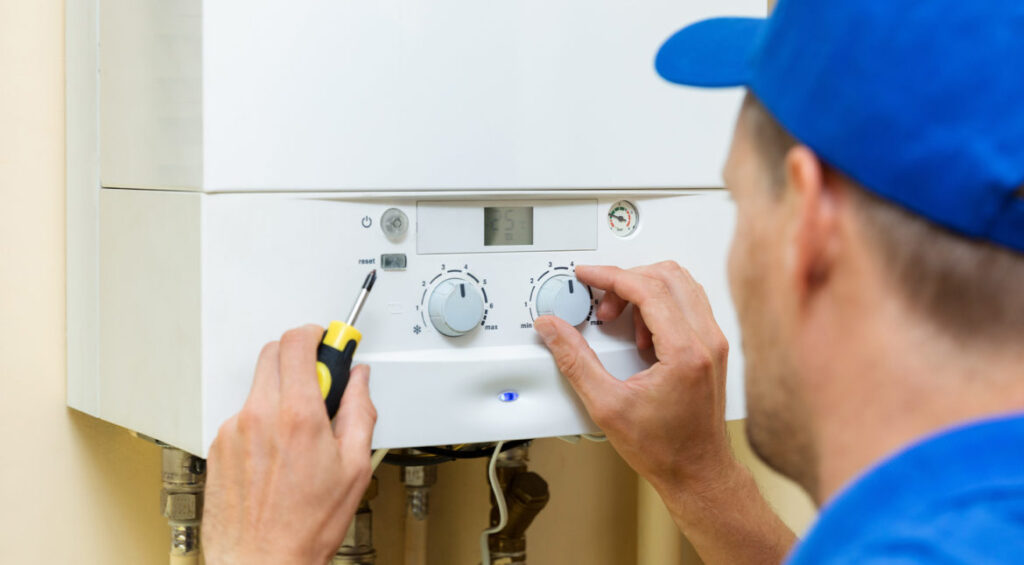Maintaining a home encompasses a range of tasks, with one of the most crucial being the upkeep of appliances, particularly the boiler. This integral component of any home not only ensures a warm and cosy environment during colder months but also provides the necessary hot water for daily activities. However, many homeowners often overlook the importance of boiler maintenance, which can lead to premature breakdowns and costly repairs. In this detailed blog, we aim to empower you with the knowledge and tips needed to extend the life expectancy of a boiler.
From understanding the basics of boiler operation to implementing routine maintenance strategies, we cover all aspects that contribute to a boiler’s longevity. By taking proactive steps in maintaining your boiler, you can ensure its optimal performance, reduce energy costs, and avoid the inconvenience of unexpected failures. The goal is to provide you with practical, easy-to-implement advice that will keep your boiler running efficiently for years to come.
Understanding Your Boiler
Table of Contents
Before diving into maintenance tips, it’s important to understand what a boiler is and how it works. Boilers heat water, which is then circulated through pipes to radiators or underfloor heating systems, providing warmth to your home. They also provide hot water for your taps and showers. The efficiency and lifespan of a boiler can be impacted by several factors including its type, usage, and maintenance.
Regular Maintenance Checks
The first step in prolonging the life expectancy of a boiler is to conduct regular maintenance checks. These checks can identify any potential issues before they become major problems. It is advisable to have a professional inspect your boiler annually. They will check for leaks, corrosion, and ensure that all components are functioning correctly.
Keeping the Pressure Right
Boilers operate efficiently at a certain pressure level, usually indicated in the user manual or on the boiler itself. Regularly check the pressure gauge and ensure that it remains within the recommended range. Too high or too low pressure can strain the boiler and reduce its lifespan.
Bleeding Radiators
Air can become trapped in your radiators over time, causing your boiler to work harder than necessary. Bleeding your radiators removes this air, allowing hot water to circulate more effectively. This simple task can be done without professional help and can significantly improve the efficiency of your heating system.
Addressing a Dripping Shower
A dripping shower might seem like a minor annoyance, but it can be indicative of a larger issue within your plumbing system, which in turn can affect your boiler. Fixing a dripping shower promptly can prevent further strain on your boiler and extend its lifespan.
Descale Your Boiler
In areas with hard water, limescale can build up inside your boiler and heating system. This buildup can reduce the efficiency of your boiler and lead to breakdowns. Descale your boiler regularly to prevent this buildup and maintain its efficiency.
Insulate Pipes
During winter, the pipes leading to and from your boiler can freeze, causing significant damage. Insulating these pipes can prevent freezing and ensure that your boiler operates efficiently during colder months.
Thermostat Management
Using a programmable thermostat can help in managing the workload of your boiler. By setting temperatures for different times of the day, you can ensure that your boiler isn’t working unnecessarily when the house is empty.
Avoid DIY Repairs
If your boiler is experiencing issues, avoid trying to fix it yourself. Boilers are complex and potentially dangerous appliances. Always call a professional for repairs to ensure safety and prevent further damage to the boiler.
Replacing Parts Timely
Parts of your boiler, like the pump or the heat exchanger, may wear out over time. Replacing these parts promptly when they start showing signs of wear can prevent more significant issues and extend the overall lifespan of your boiler.
Consider Upgrading
Older boilers are generally less efficient and more prone to breakdowns. Consider upgrading to a newer, more energy-efficient model if your boiler is over 15 years old. This can save you money in the long run in terms of energy bills and repair costs.
Educating Yourself and Family
Understanding how your boiler works and educating your family about its basic operations can prevent misuse and unnecessary strain on the system. Simple practices like adjusting the thermostat appropriately and not cranking up the heating unnecessarily can make a significant difference.
Balancing Your Heating System
Ensuring that your heating system is balanced can improve the efficiency of your boiler. This means adjusting the valves on your radiators so that they all heat up at the same rate. An unbalanced system can cause your boiler to work harder than necessary, shortening its lifespan.
Avoid Overworking Your Boiler
Try not to overwork your boiler. Using too many hot water appliances simultaneously or constantly adjusting the thermostat can put unnecessary strain on your boiler. Try to use hot water appliances sequentially and maintain a consistent temperature in your home.
Final Thoughts
In conclusion, the key to prolonging the life expectancy of a boiler lies in consistent and effective maintenance. By incorporating the practices discussed, such as regular professional checks, addressing issues like a dripping shower, and understanding the nuances of boiler care, you can significantly enhance the longevity and performance of your boiler. Remember, a well-maintained boiler not only contributes to a comfortable and warm home but also offers peace of mind and financial savings in the long run. It’s about striking a balance between proactive maintenance and efficient usage.
Moreover, being aware of the signs that indicate your boiler may need attention can prevent minor issues from escalating into major problems. As we’ve outlined, simple measures such as insulating pipes, managing thermostats, and avoiding DIY repairs play a pivotal role in boiler care. Ultimately, the effort you put into maintaining your boiler is an investment in your home’s comfort and safety. So, take these tips on board, consult with professionals when needed, and enjoy the benefits of a reliable and efficient home heating system.

